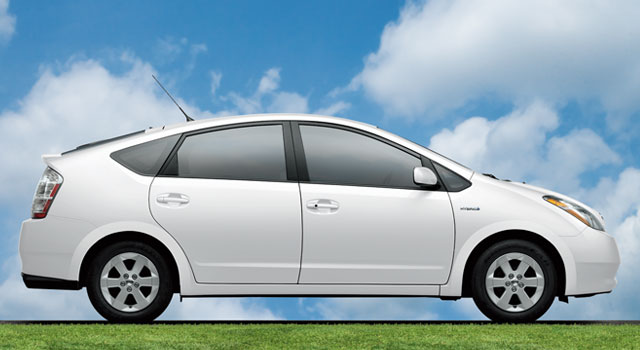Hybrid drivers: Nice try, but your wheels aren't really saving the planet.

Consumer Reports announced Thursday that the mileage ratings on Ford's hybrid models were inflated. Instead of getting "47 city/47 highway/47 combined mpg" as advertised, the Fusion sedan gets 35/41/39 and the new C-Max wagon gets 35/38/37. That's a pretty big difference -- far bigger than any that Consumer Reports found for other cars.
And it can add up to a lot if hybrid drivers follow the guidance and do a ton of driving -- that's the only way to get their money's worth, after all. An article this morning in Business Insider offers this perverse incentive for environmentally-minded hybrid owners to spend lots of time on the road:
Hybrid cars get better fuel economy, so the more miles you drive, the faster you will recoup the extra cost [of the vehicle purchase]. To get to the break-even point the quickest, you'll want to be someone who logs at least an average number of miles annually (12,000 is typical) or more.
When you're driving those 12,000+ miles a year, should you drive them in the city or on the highway? You'll get better mileage on the highway, but hybrids really shine in the city, since they recharge when you brake. That's the beauty of a hybrid! Except the more you brake and recharge that battery, the more long-term capacity the battery loses.
The conventional wisdom these days is that the concern over battery life is exaggerated, though the technology is still new enough that there's not a lot of great information on it. Honda, Toyota and Ford all guarantee their hybrid batteries for eight years or 80,000 miles. Of course, if you're dutifully putting lots of miles on your car to make up the purchase price in saved gas, you're driving a lot more than 80,000 miles in eight years. Besides, eight years isn't a particularly long lifespan for a car.
And the manufacture of a car is the most intensive polluting part of its life-cycle, so having to buy a new one sooner doesn't do the environment any favors.
Fully electric cars have simpler motors than gas-powered cars' engines, and experts say those can last longer because they have fewer moving parts. But hybrids have both, making them the most complex, with the most parts that can malfunction.
Hybrid drivers trying to lessen their impact on the Earth may find they can't have their cake and eat it too. As Angie reported last week, electric cars powered by coal are no environmental bargain either. In the end, there's still no way to drive a car without polluting, incentivizing road-building, and encouraging terrible land-use decisions.





